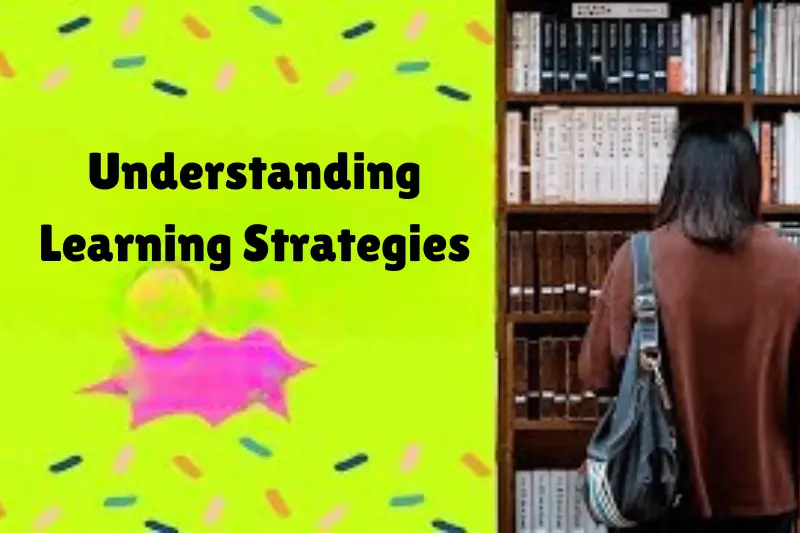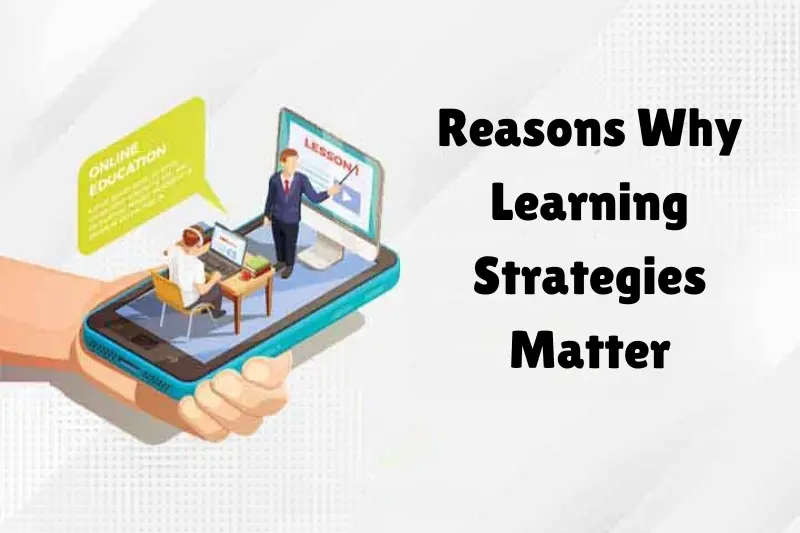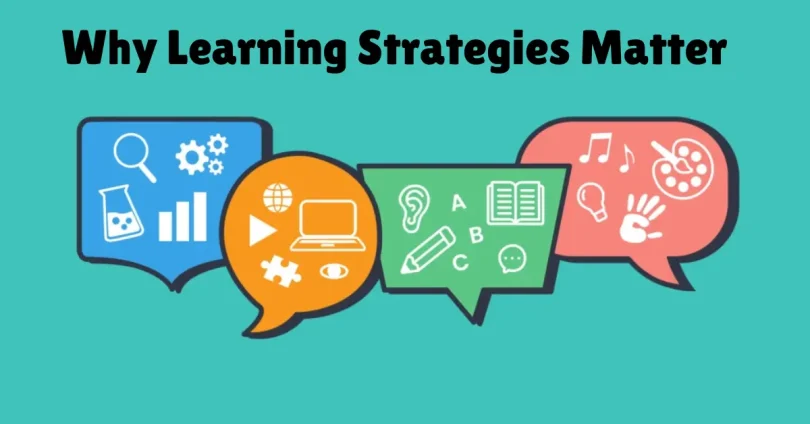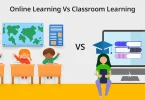Have you ever noticed how some people seem to pick up new skills effortlessly, while others struggle despite putting in the same amount of time? Or why certain study methods work for you, but others feel like a waste of effort? The difference often comes down to learning strategies—the methods and techniques we use to process, understand, and remember new information.
Understanding why learning strategies matter can completely transform the way you learn, making your efforts more effective and less stressful.
Understanding Learning Strategies

Learning strategies are the approaches, tools, and techniques we use to acquire, process, and apply knowledge. Everyone learns differently. Some people excel when reading textbooks, others remember better when they hear information, and some grasp concepts best through hands-on practice. These differences are called learning styles, and recognizing your style is the first step toward learning more efficiently.
However, simply knowing your learning style isn’t enough. Effective learning happens when you combine your preferred style with targeted strategies. For example:
- Visual learners benefit from diagrams, charts, color-coded notes, and infographics.
- Auditory learners gain more from discussions, podcasts, lectures, or repeating information aloud.
- Kinesthetic learners learn best by doing—practical exercises, experiments, and real-life applications help them retain knowledge.
Using the right strategies alongside your learning style makes studying easier, faster, and more enjoyable.
Reasons Why Learning Strategies Matter

1. Improves Understanding
A good learning strategy goes beyond rote memorization. It allows you to truly understand concepts, which is essential for applying knowledge in real-life situations. For instance, solving math problems repeatedly without understanding the formula won’t help you when faced with a slightly different problem. Using strategies like concept mapping or teaching someone else ensures that you understand, not just memorize.
2. Enhances Retention
Have you ever crammed all night for a test and forgotten everything the next day? That’s what happens when you study without a proper strategy. Techniques like spaced repetition, active recall, and summarization help you retain information for the long term. Instead of forgetting, you’re more likely to remember what you learned weeks or months later.
3. Saves Time and Effort
Studying without a strategy can feel overwhelming and chaotic. The right learning strategies help you focus on what truly matters, prioritize tasks, and avoid wasted effort. For example, using a study schedule or breaking down topics into manageable chunks can turn hours of stressful cramming into productive study sessions.
4. Builds Confidence
When you understand and remember information better, your confidence naturally grows. This is crucial during exams, presentations, or skill-based tasks, where applying knowledge accurately matters more than just recalling facts. Confident learners are also more likely to take risks, explore new topics, and challenge themselves, which further boosts learning.
5. Supports Lifelong Learning
Learning strategies aren’t just for students—they are lifelong tools. Whether you’re learning a new language, mastering a musical instrument, or developing professional skills, the right strategies make the process more efficient and enjoyable. Understanding why learning strategies matter ensures that you become a more capable and adaptable learner throughout your life.
Practical Tips to Use Learning Strategies Effectively
Here are some actionable tips to help you make the most of your learning:
- Identify Your Learning Style
Take time to understand whether you learn best visually, audibly, or through hands-on experiences. Tailor your strategies accordingly. - Use Active Learning Techniques
Engage with the material actively. Ask questions, summarize what you learned, teach someone else, or apply concepts in real situations. - Break Information into Chunks
Large amounts of information are overwhelming. Divide your study material into smaller, manageable parts to make learning more digestible. - Review Regularly
Frequent review helps transfer knowledge from short-term to long-term memory. Schedule short review sessions to reinforce what you’ve learned. - Combine Strategies
Don’t stick to just one approach. Mix techniques—read, listen, practice, and discuss—to deepen your understanding and retention.
You may also like to read this:
Top Strategies Explaining What Are Effective Learning Tips
7 Types of Learning Methods For Students: A Complete Guide
How To Improve Study Habits: Tips For Smarter Learning
10 Top Learning Tips For Exams To Boost Performance
Overcoming Challenges with Learning Strategies
Even with the best strategies, learning isn’t always smooth. Common obstacles like procrastination, distractions, or low motivation can slow progress. The good news is that learning strategies can help overcome these challenges:
- Set Clear Goals: Break your learning objectives into smaller, achievable targets to stay motivated.
- Eliminate Distractions: Find a quiet study space, turn off notifications, or use apps that block distractions.
- Reward Yourself: Celebrate small victories to keep your momentum going.
- Adjust Your Strategy: If one method isn’t working, switch it up—adaptation is key to staying effective.
By addressing these challenges head-on, learning strategies help you stay consistent and make steady progress.
The Role of Technology in Learning Strategies
In today’s digital age, technology can supercharge your learning strategies:
- Educational Apps: Tools like flashcards, language apps, and quiz apps make active recall easier.
- Online Courses & Tutorials: Platforms like Coursera, Udemy, or YouTube offer interactive ways to learn new skills.
- Digital Notes & Mind Maps: Software like Notion, OneNote, or MindMeister helps organize and visualize information.
- Productivity Tools: Timers, calendars, and task managers help you schedule study sessions and track progress.
Using technology alongside traditional strategies enhances efficiency, keeps learning engaging, and allows you to study anytime, anywhere.
Real-Life Examples of Effective Learning Strategies
Here’s how learning strategies work in real life:
- A Student in Science: By combining visual diagrams, active recall, and group discussions, a student improves both understanding and retention of complex concepts.
- A Professional Learning a Language: Using a mix of podcasts, flashcards, and daily conversations accelerates language acquisition.
- A Lifelong Learner Picking Up a New Skill: Combining tutorials, practice sessions, and reflection journals helps master a skill faster than relying on one method alone.
These examples highlight how learning strategies can be adapted to any context, making learning more effective and enjoyable.
Adapting Learning Strategies for Lifelong Learning
Learning doesn’t stop after school or college—it’s a lifelong process. Your strategies should evolve as your goals and environments change:
- Students: Focus on exam preparation, homework, and time management strategies.
- Professionals: Use strategies for skill development, project-based learning, and professional certifications.
- Personal Growth: Explore hobbies, languages, or creative skills using a combination of online resources, practice, and reflection.
Adapting your learning strategies ensures you remain a curious, efficient, and motivated learner throughout life.
Final Thoughts
Understanding why learning strategies matter is the key to becoming a smarter, more effective learner. By using strategies tailored to your learning style, you can:
- Improve comprehension and understanding
- Retain information longer
- Save time and reduce stress
- Build confidence
- Support lifelong learning
Start experimenting with different techniques today, and you’ll quickly notice how effective learning strategies can transform the way you acquire and apply knowledge. Learning isn’t just about working harder—it’s about working smarter, and the right strategies make all the difference.
FAQs
1. What are learning strategies?
Answer: Learning strategies are methods and techniques used to process, understand, and retain information more effectively. They include approaches like active recall, spaced repetition, mind mapping, and hands-on practice.
2. Why are learning strategies important?
Answer: Learning strategies improve understanding, enhance memory retention, save time, and boost confidence. They also support lifelong learning, making it easier to acquire new skills throughout life.
3. How do learning strategies differ from learning styles?
Answer: Learning styles describe how you naturally prefer to learn (visually, audibly, or kinesthetically). Learning strategies are the techniques you use to study or practice, which can be adapted to your learning style for better results.
4. Can learning strategies help me remember information longer?
Answer: Yes! Techniques like spaced repetition, summarization, and active recall are designed specifically to enhance long-term memory and reduce forgetting.
5. Are learning strategies useful for adults, not just students?
Answer: Absolutely. Learning strategies are valuable for anyone, whether you’re learning a new language, developing professional skills, or picking up a hobby. They make learning more efficient and enjoyable at any age.





